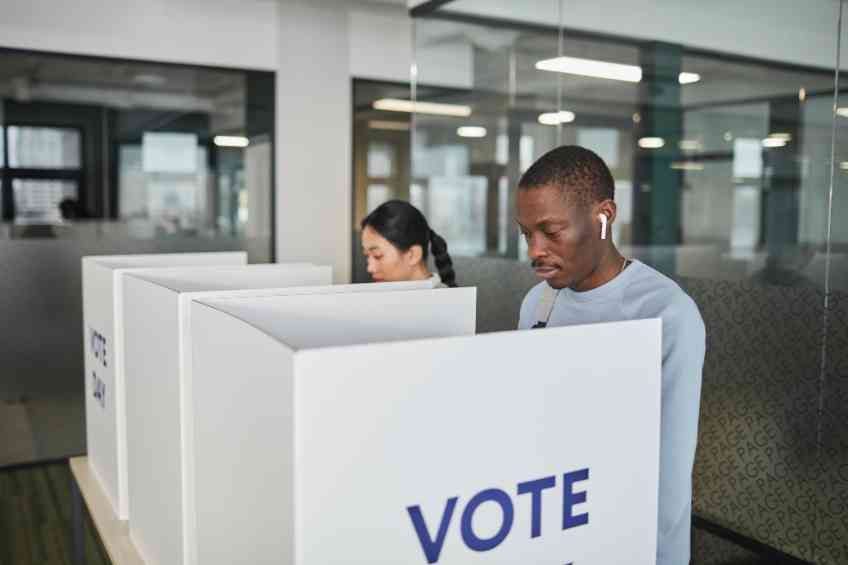By John Salak –
New flash: The American political system is stressing out the country’s citizens leading to dangerous health issues. Americans whack out about elections and are getting stressed out thinking about getting stressed out.
That’s the bad news out of North Caroline State University. The good news is that NC State researchers have offered up a means to lower the internal turmoil confronting voters.
The university’s research is part of a burgeoning academic and medical effort to identify, quantify and treat election anxiety, which now impacts a substantial and growing percentage of Americans. In the 2016 presidential election, 52 percent of voters reported being stressed out over the outcome. Four years later, the levels of stressed voters had risen to 68 percent, according to the American Psychological Association (APA).
The condition even has a medical term: election stress disorder, with a subunit being post-election stress disorder. The symptoms include trouble sleeping, loss of appetite, stomach disorders, sweating and excess worry—all of which can take a toll on an individual’s health.
The North Carolina researchers worked with adults nationwide to gauge their stress levels before and after the midterm elections.
“This is the first study to show that anticipatory stress related to elections can harm our health,” reported the study’s corresponding author Shevaun Neupert, an NC State professor. “It’s well established that stress can adversely affect our health. This study tells us that thinking we’re going to feel stress in the near future can also adversely affect our health.”
The team defined the near future as just one day out.
“We found that study participants reported worse physical health on days when they also reported having high levels of anticipatory stress—meaning they expected to experience election-related stress within the next 24 hours,” Neupert says. “In other words, simply anticipating possible stress was enough to make them feel worse.”
The APA, among other organizations, recommends that individuals confronting this disorder stay active, socially connected, engaged in meaningful deeds and realize what is in their control. The university has another solution for these sufferers to relieve stress and maintain their health: a problem analysis.
“Problem analysis, in this case, is when people think critically about why they believe they’ll experience election-related stress over the next 24 hours,” Neupert explained. “For example, if they think they’re going to argue about the election with an acquaintance in the next 24 hours. They might think about why that argument will happen or what it will be about. Problem analysis is about mentally engaging with whatever problem they’re anticipating.”
Participants found the approach beneficial. On days when they anticipated stress but were also actively engaging in problem analysis, they reported no decline in physical health.
“One reason we think problem analysis is so important is that it’s a necessary first step for many additional coping strategies,” Neupert explains. “For example, problem analysis may help people think of ways to avoid having an argument they’re anticipating or help them think of ways to make the argument less heated.”
The approach worked across all political positions for those who anticipated stress and were experiencing it, added the study’s first author Brittany Johnson.
“No matter how you slice it, anticipating election-related stress adversely affected health — except when people were engaged in problem analysis,” she said.










